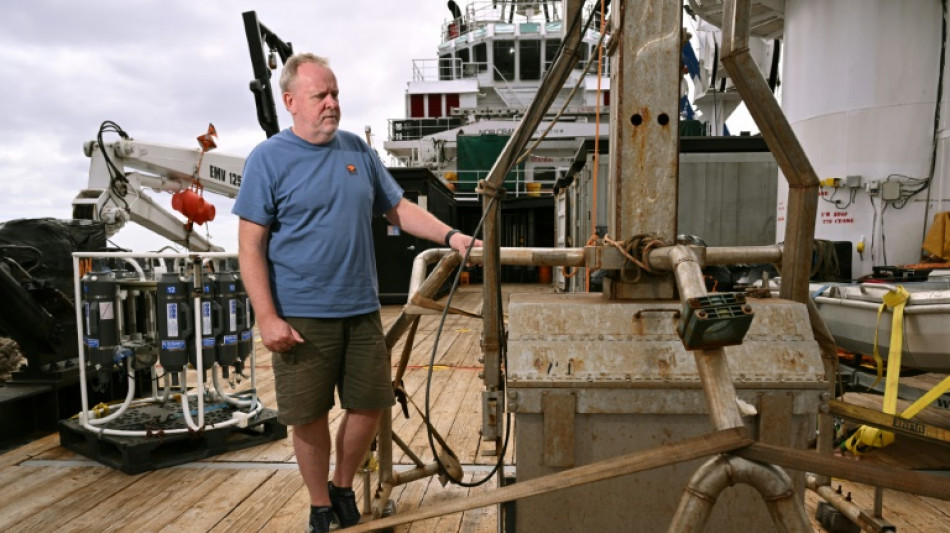

Trump a boon for deep-sea mining: industry boss
A leading deep-sea mining company in the paradisal Cook Islands is aiming to start commercial production by 2030, spurred on by Donald Trump's recent backing for the much-maligned industry.
Moana Minerals wants to mine a swathe of deep ocean in the South Pacific nation for polymetallic nodules, golf-ball sized lumps studded with metals like cobalt, nickel and manganese.
Efforts to start commercial-scale production have been dogged by growing calls to ban the industry until its environmental impact is clear.
But Moana Minerals boss Hans Smit said fresh momentum was building, citing the support of US President Trump.
Trump earlier this year signed an executive order targeted at "unleashing" mineral resources found in the deep ocean.
"What he's done is tasked his people to go and look at it seriously," Smit said.
"It certainly is helpful that we are engaging with a lot of people that in the past would not give us the time of day. But they are listening."
Both the United States and China have signalled renewed interest in deep-sea mining, which could offer a pipeline of critical minerals that helps insulate them from future trade ructions.
Trump is eager to weaken China's stranglehold on the coveted metals, which are used in everything from rechargeable batteries to military technology.
Cook Islands -- which lays claim to one of the world's biggest deposits of polymetallic nodules -- signed a contentious deep-sea mining cooperation deal with China earlier this year.
US-based Smit had a simple message for those worried about China's foray into the industry.
"The people yelling at the Cook Islands for talking to the Chinese, I have a very simple statement for them: If you want to counter the Chinese, get off your arse and do something proactive."
Cook Islands' Pacific neighbour Kiribati is also exploring a deep-sea mining deal with China.
China already holds some of the world's largest deposits of critical minerals and is fiercely protective of its position.
Smit said he hoped to start industrial-scale deep-sea mining by the end of the decade.
"I want to be mining before 2030. Yeah, absolutely, I think that we can."
- Frustration -
The International Seabed Authority -- which oversees deep-sea mining in international waters -- has yet to adopt long-awaited rules governing the industry.
Canada-based The Metals Company has indicated it could forge ahead and start mining international waters without the authority's approval, applying instead for a mining permit under obscure and untested US laws.
Those laws say US citizens can mine the ocean, as long as their activities lie outside the nation's maritime territory.
"I can understand why The Metals Company have done it," Smit said.
"I can understand their frustration and empathise with it.
"But I still think there's a lot to be unpacked before we're going to have any clarity as to which way it's going to go."
The Cook Islands government, which is supportive of deep-sea mining, said it would not set a time frame on when it hoped to have the industry under way.
But the government said it remained "aligned" with the International Seabed Authority's approach.
"Cook Islands will remain steadfast in our precautionary approach," government spokesman Edward Herman told AFP.
"We believe that the Cook Islands government and the people can make an informed decision."
G.Mittal--MT




